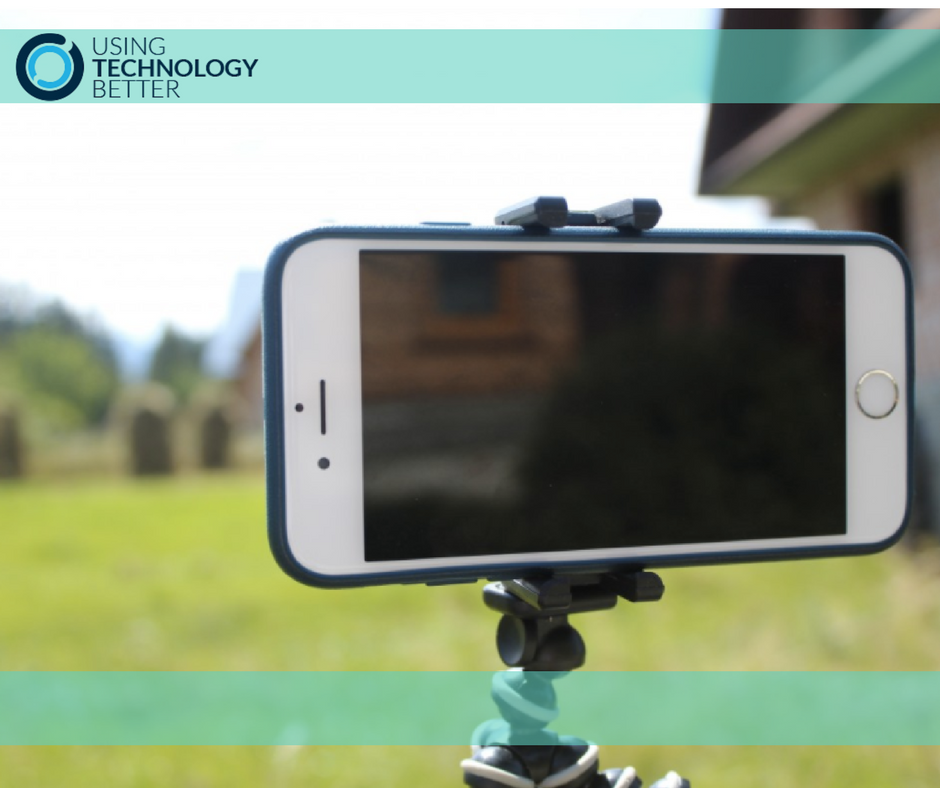
With mobile phones and many cameras now being able to shoot video in 4K, should you jump in and join the crowd? The quality is much crisper, but is it always better to shoot in this resolution? The answer comes down to what you are wanting to do with the vision and how you are going to edit and manage the files. To set the scene, I am using an iPhone 7 Plus and Final Cut ProX (FCPX).
Before we jump into the discussion, let’s look at what 4K actually is. 4K has been out for quite a few years now, but is now starting to be mentioned more in advertising for TV’s and cameras. The format has 4000 pixels horizontal resolution, meaning that there is much higher definition, and more than four times higher image definition than 1080p resolution. The standard 1080p and 720p resolutions were named because of their respective vertical resolution. With the higher definition comes the need for more memory and different compression. Also, depending on your device that you are recording on, the frame rate may be different the higher the resolution you use.
[bctt tweet=”When you film in 4k, the ability to pan across a shot using key frames produces a great effect, without loss of quality.” username=”adifrancis”]
You may be able to shoot at 60 frames per second (fps) at 4K (for the newer model iPhones) but most handle 25 fps or 30 fps. The more frames per second, the smoother the movements will be. Having used 30 fps in some recent filming, I have found that this was fine for the situation I was filming for. If I had fast action, then I may have found it a bit jumpy.
iOS11 has a new method for compressing 4K video, which takes up less space. This is called HEIF/HEVC, and at this stage the codec that is used may not be compatible with your editing software. You are able to shoot in 4K, but then you need to apply a work-around to be able to edit it in FCPX.
To edit 4K in Final Cut:
- Shoot the video on your iPhone in 4K.
- Import it into Photo’s from your iPhone.
- Export the file from Photo’s.
- Import the file into FCPX.
When the new codecs are released for FCPX, you will be able to import directly from your iPhone, which will save time and the duplication of files. If you are importing from a camera, you may be able to import directly into FCPX. Be aware that your processor on your computer will work harder to edit 4K video.
So why would you shoot in 4K if it has larger files, the frame rate is slower, you may not be able to import and edit easily and people may not have a device capable of viewing 4K video? I will give you one good reason that relies on the final product being exported in 1080p, which is probably a high enough definition for most of us.
[bctt tweet=”Why shoot in 4k? Cropping! When you export in 1080p, then you can crop your 4K shots, pan across your shots and mimic having a second camera when doing a cut away.” username=”adifrancis”]
Cropping – if you export in 1080p, then you can crop your 4K shots, pan across your shots and mimic having a second camera when doing a cut away. This means you can set up your iPhone with a long shot, of say a panel of people, and cut and crop, zooming in on each one as if you have set up a multi camera shoot. The ability to pan across a shot using key frames produces a great effect, without loss of quality.
If you are going to export in 4K you aren’t able to do this to the same degree, but your final quality will be fabulous when viewed on an appropriate device. Remember, your final file size will be larger and if you are backing up each step of the way, you will need more HDD space.
As long as you think about what the final product is needed for, the techniques that you are going to use, the memory you have available and your processing capacity, you should be able to make a decision about what format to shoot in. For the majority of what I do I shoot in 1080p, using 4K for the special shots and circumstances I find myself in.
















